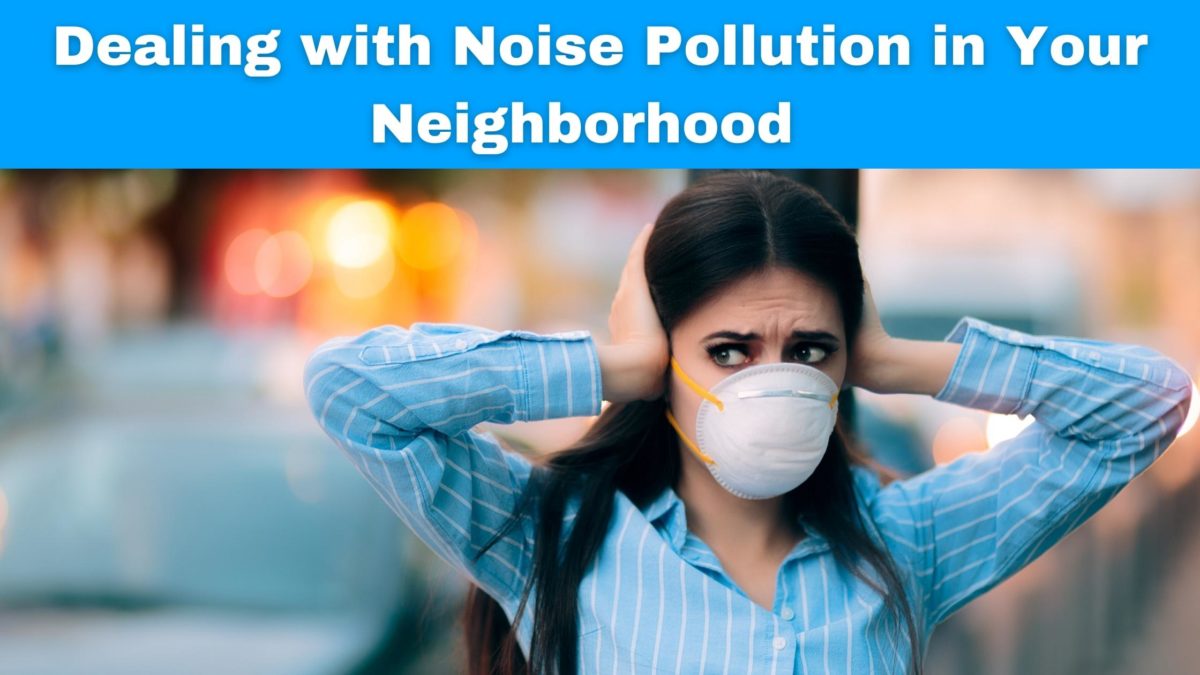Living in the city has many benefits, like good job opportunities, better access to services, excellent schools, and great restaurants. However, living in a city isn’t without risks. Cities are notoriously noisy places, with endless noise from construction sites, traffic, lawnmowers, and the neighborhood dog that never stops barking. If you have a lot of noise pollution in your neighborhood, it might be doing more damage to your hearing than you might think.
Noise can be more than annoying
Sounds fill our everyday life with joy. From conversations to music to the birds chirping outside the window, a world without sound would be very bleak. Unfortunately, we often don’t realize how many sounds are around us all the time, and we’ve learned to tune out the clacking computer keys, the dog across the street, or the sound of traffic rushing past. We live in a world full of sounds, but when these sounds start to get to us, we call them to noise. Noise pollution is when sounds in a particular area, like downtown or in your neighborhood, are constant and loud and can cause damage to your hearing.
If you pass by a construction site on your way to work, you’re likely to be bothered by it. It’s deafening for a minute, but after that, all you hear is normal traffic noise or the occasional roaring from a broken muffler. But suppose you live next to a construction site or noisy elementary school. In that case, this noise pollution can be a cause for concern as it disturbs the peace of your home, makes it hard for you to relax, adds to your stress levels, makes sleeping difficult, and can be damaging to the hearing of both you and your family.
When noise pollution leads to hearing loss
Being exposed to loud sounds for a prolonged period will lead to hearing loss. The louder the sound, the sooner you’ll experience hearing loss, and if the sounds are deafening, you’ll experience pain, temporary tinnitus, or even instant hearing loss. Normal daily noise isn’t enough to cause hearing loss, but if you live in an area with a lot of noise pollution or work in a noisy sector, all these sounds can add up and leave you straining to hear.
Some of the most common sources of noise pollution in your neighborhood are traffic noises, honking horns, vehicles in disrepair, or trains. Another noise source is nearby bars, clubs, or music venues that can add to nighttime noise pollution. Construction sites, like the new apartment building going up a block away and the fire station around the corner, are also sources of noise pollution. Even things like the hum of an air conditioning unit, your neighbors’ lawn mowers, leaf blowers, and power tools, or your vacuum cleaner lead to noise pollution, for that’s damaging the hearing of you and the other people on your block.
How to protect yourself from noise pollution
If you live in an area with a lot of noise pollution, you can take it up with local and state governments. Most cities have designated quiet hours, and no matter where you live, you should be able to escape the noise and rest your ears between 10 p.m. and 7 a.m. During these hours, noise pollution is prohibited, and law enforcement is responsible for enforcing these hours.
After you’ve talked to local law enforcement, there are a few things you can do to noise-proof your home. A great way to reduce the noise pollution in your home is to build a fence around your yard to block sounds and provide some peace. Planting vegetation around your yard also absorbs many sounds, and you can put in a fountain or a water feature to muffle noise pollution. Consider carpeting the living room since this absorbs more sounds, and be sure to seal cracks or holes in your doors or windows to stop sounds from entering your home uninvited.
Time to treat your hearing
Have you experienced hearing loss, either from aging, exposure to loud noises, or noise pollution in your neighborhood? Visit us for a hearing assessment and consultation. In addition, we work with leading hearing aid brands to provide the best in hearing, whatever your lifestyle and hearing needs.

